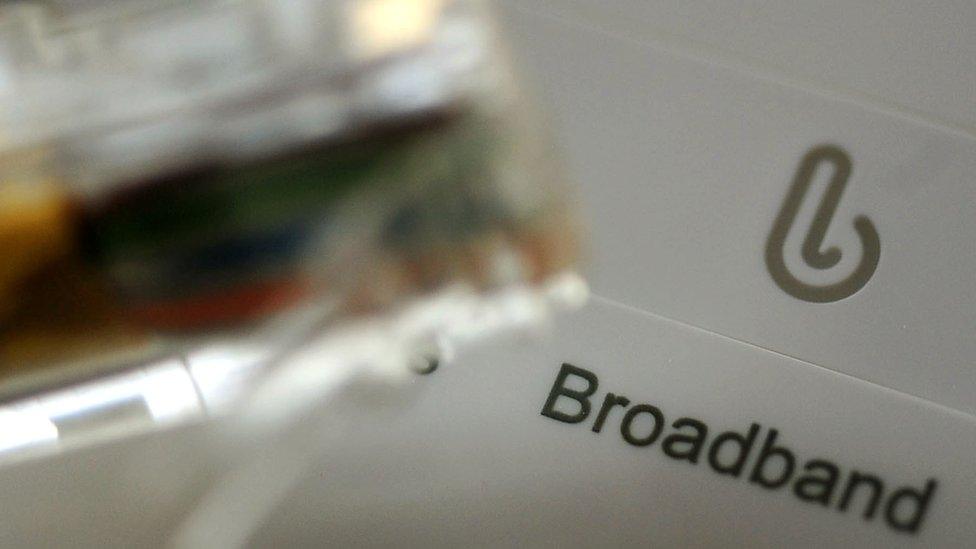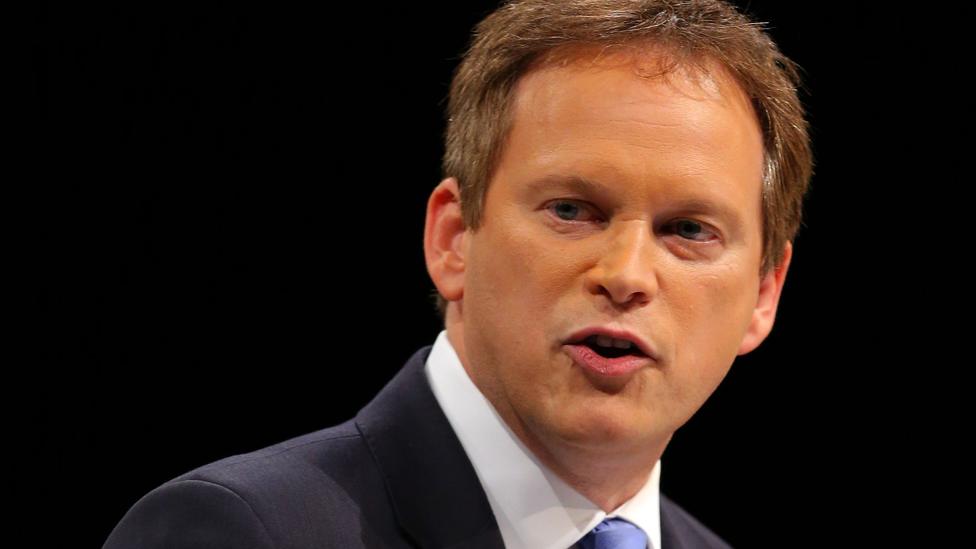Needed - facts about broadband
- Published
- comments

What's the state of Britain's broadband infrastructure and would it be better if the dominant supplier BT was split up?
That is the big issue for the regulator Ofcom and, as its decision approaches, the political temperature is hotting up. What has been lacking from the debate so far is much independent research with some facts about where we stand now and how we compare internationally.
Now a cross-party group of more than 100 MPs, led by the former Conservative party chairman Grant Shapps, has made a contribution. They have signed a letter calling for BT's Openreach division to be split off, external, backed up by a major study of the market.
It's called "Broadbad" and makes a number of claims, notably:
5.7 million people in the UK do not have broadband at the minimum 10Mbps speed set by Ofcom
BT has been given £1.7bn in subsidies to hook up remote parts of the UK to superfast broadband but has repeatedly failed to deliver
Britain is lagging behind countries such as Japan, South Korea and even Spain
The study is the work of something called the British Infrastructure Group, which has been created by Grant Shapps, and he is listed as the author. But within hours of it being published many of the key facts in the report have been questioned by those who have followed the broadband debate closely.
I've been speaking to Andrew Ferguson, who runs the consumer site thinkbroadband, and Carl Thomas, an IT specialist and superfast broadband campaigner, who published this critique of the report, external.
On the first claim, that 5.7 million people are not even getting 10Mbps, both say the figure is out of date. Grant Shapps has taken a May 2015 Ofcom study, external which shows 8% of households - that's 2.4 million - currently falling below that threshold, and multiplied that by the average UK household size of 2.37. But Mr Ferguson says his more recent research shows that figure is now down to 1.2 million homes and is continuing to fall as the superfast roll-out proceeds.
The second assertion - that BT has wasted £1.7bn of public money - will be seen sympathetically in those rural areas still waiting for the BDUK programme to deliver them superfast broadband. But again the claim looks overstated. BT has so far received only a third of that sum as the programme is still underway, and it has also been obliged to return some of the cash because take-up in some areas means that its broadband service is commercially viable.

Former Conservative chairman Grant Shapps claims Britain's broadband is unacceptably slow
But can we say the BDUK programme has already failed? It is worth pointing out that both Ofcom and the government of which Grant Shapps was recently a member insist that Britain is on track to deliver superfast broadband to 95% of households by 2017. Indeed, a year ago Mr Shapps said on a ministerial visit to Cumbria, external: "We've got now some of the best, if not the best coverage of superfast in Europe."
Which brings us to the third claim, that Britain is falling behind the rest of the world. That is demonstrably true when it comes to Japan and South Korea, but as Carl Thomas points out those are very different markets, where many people live in vast apartment blocks and governments are prepared to direct substantial funds into building infrastructure. A better comparison would be with our European neighbours, and there we appear to be doing well on coverage and competition, perhaps less well on headline speeds.
Of course the big question is, do we now need a radical change in the UK's broadband strategy and should that involve splitting off BT's Openreach division? BT's critics say its strategy of squeezing as much as it can out of its copper network instead of laying fibre direct to the premises will cost the UK dear in the longer run.
We need to examine what other countries are doing to see if lessons can be learned from the likes of Sweden and the Netherlands, which seem to be getting it right. There is also a live experiment underway in Hull where the local monopoly telecoms provider Kcom is promising fibre-to-the-home for everyone - though in the short term that means that the city ranks almost at the bottom of Mr Shapps' table of constituency broadband speeds because the programme is slower to roll out than BT's less ambitious strategy.
What is hard to know is whether an independent Openreach would change direction and invest more. Thomas says that it would still be a natural monopoly with shareholders who might be even less likely to sanction increased investment. But some competition economists believe that, as a part of BT, Openreach feeds some monopoly profits back to the parent group and these would instead be available for investment in fibre.
The arguments will continue but the pressure on Ofcom to act decisively is mounting. But it would be good to see the debate informed by more facts - and fewer assertions.